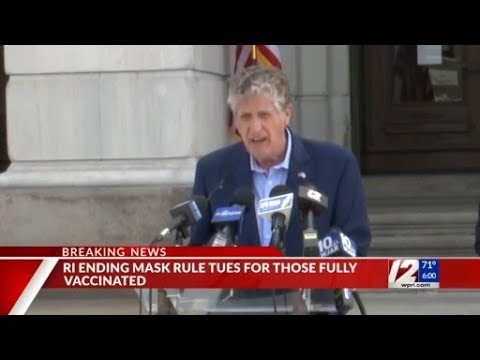Introduction: The Importance of Wearing Masks in Rhode Island
Wearing masks has become an essential tool in the fight against COVID-19. In Rhode Island, where the virus has had a significant impact on public health, the importance of wearing masks cannot be overstated. Masks act as a barrier, preventing the transmission of respiratory droplets that may contain the virus. By wearing masks, individuals contribute to the overall effort to reduce the spread of COVID-19, protecting both themselves and others.
Rhode Island’s Current COVID-19 Situation
Rhode Island has been significantly affected by the COVID-19 pandemic. As of the latest data, the state has recorded thousands of cases and experienced numerous deaths. The virus has spread throughout various communities, necessitating a comprehensive response to mitigate its impact. In light of this situation, wearing masks has become crucial in controlling the spread of the virus and curbing the number of infections.
State Guidelines: Mask Mandates in Rhode Island
Rhode Island has implemented mask mandates to ensure public safety. The state’s guidelines require individuals to wear masks in public places, including when social distancing is not possible. Moreover, masks are mandatory indoors and outdoors when in close contact with others who are not part of the same household. These mandates apply to everyone aged two and above, with exemptions for specific cases detailed by the state’s authorities.
Mask Effectiveness: Preventing Virus Transmission
Wearing masks has proven to be highly effective in preventing the transmission of respiratory droplets that may contain the virus. Studies have shown that masks significantly reduce the risk of both transmitting and contracting COVID-19. By acting as a physical barrier, masks prevent respiratory droplets from being released into the air, protecting individuals from potentially inhaling infectious particles and reducing the spread of the virus.
Understanding Different Types of Masks
Several types of masks are available, each offering varying degrees of protection. The most commonly used masks include cloth masks, surgical masks, and N95 respirators. Cloth masks, often made from tightly woven fabric, can provide a basic level of protection. Surgical masks offer a higher level of filtration, while N95 respirators provide the highest level of protection against airborne particles. Understanding the differences between these masks is crucial in selecting the appropriate option for various circumstances.
Where to Find and Purchase Masks in Rhode Island
Residents of Rhode Island can easily find masks for personal use. Local pharmacies, supermarkets, and retail stores commonly stock disposable masks, cloth masks, and other varieties. Furthermore, online platforms and websites of local businesses provide convenient options for purchasing masks. Additionally, the state government has taken steps to distribute masks to vulnerable populations and underserved communities, ensuring access to protective equipment for all residents.
Proper Mask Usage: Dos and Don’ts
To ensure the effectiveness of masks, it is essential to follow proper usage guidelines. Dos include wearing masks that cover both the mouth and nose, properly washing reusable masks, and storing them in a clean, dry place. On the other hand, don’ts involve avoiding touching the mask unnecessarily, not sharing masks with others, and refraining from wearing masks with valves, as they do not offer sufficient protection. Adhering to these guidelines helps maximize the benefits of wearing masks.
Mask-Wearing: Protecting Yourself and Others
Wearing masks not only protects the wearer but also those around them. As COVID-19 can be transmitted by both asymptomatic and pre-symptomatic individuals, wearing masks is a preventive measure that limits the spread of the virus. By wearing masks, individuals demonstrate their commitment to the health and safety of their community, helping to safeguard vulnerable populations and reduce the burden on healthcare systems.
Masks and Social Distancing: Complementary Measures
While masks are a vital tool in preventing the spread of COVID-19, they should not replace other preventive measures. Social distancing remains crucial even when wearing masks. The combination of masks and social distancing provides a higher level of protection against the virus. By maintaining a safe distance from others and wearing masks in suitable settings, individuals can significantly reduce the risk of transmission and ensure a safer environment for all.
Exemptions: Who is Not Required to Wear Masks?
Rhode Island’s mask mandates include exemptions for specific individuals. These exemptions typically apply to those with medical conditions that prevent them from safely wearing a mask. Additionally, individuals who have difficulty removing a mask without assistance are also exempted. It is important to note that these exemptions are specific and should not be misused. Individuals falling under these exemptions should continue to follow alternative measures to protect themselves and others.
Mask Policies: Businesses and Public Places in Rhode Island
Businesses and public places in Rhode Island have implemented strict mask policies to ensure the safety of their customers and employees. Signs reminding individuals to wear masks are commonly displayed at entrances. Compliance with these policies is vital for the successful containment of the virus. Businesses reserve the right to deny entry to individuals not wearing masks, helping to create an environment where the risk of transmission is minimized.
The Future of Mask-Wearing in Rhode Island
As the situation surrounding COVID-19 continues to evolve, the future of mask-wearing in Rhode Island remains uncertain. The effectiveness of vaccines and the overall trajectory of the pandemic will play a significant role in determining the necessity of ongoing mask mandates. It is crucial for residents to stay informed about the latest guidelines and recommendations from health authorities to ensure the continued protection of themselves and their communities.





